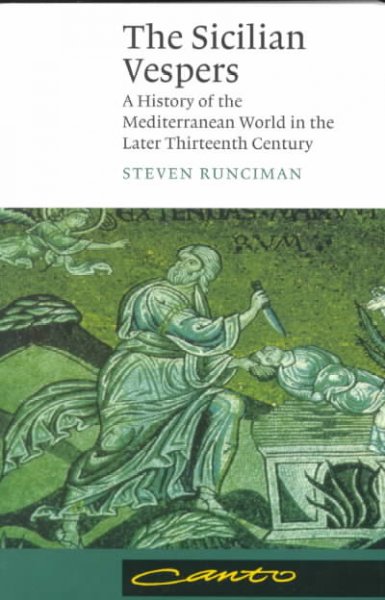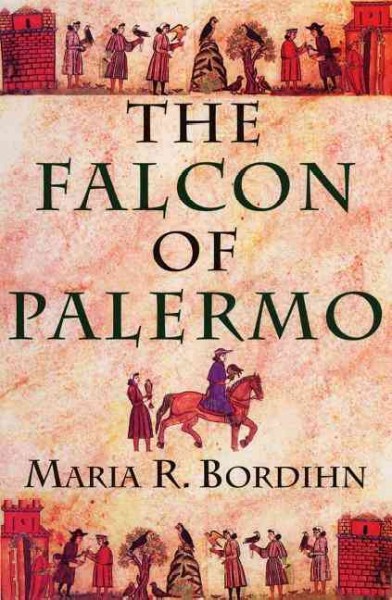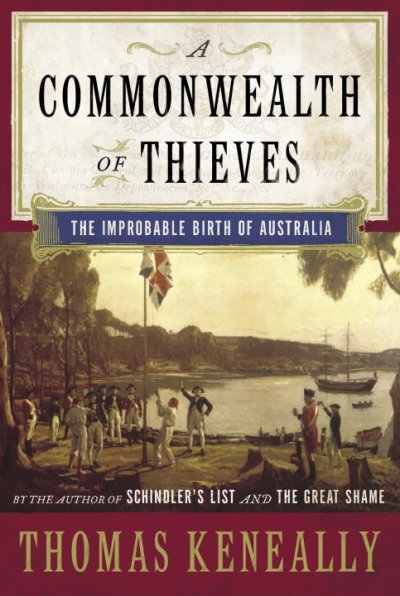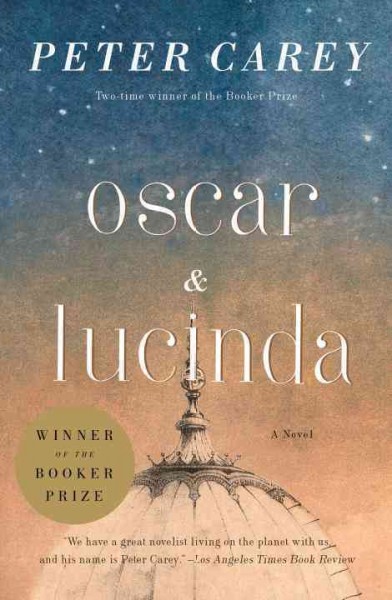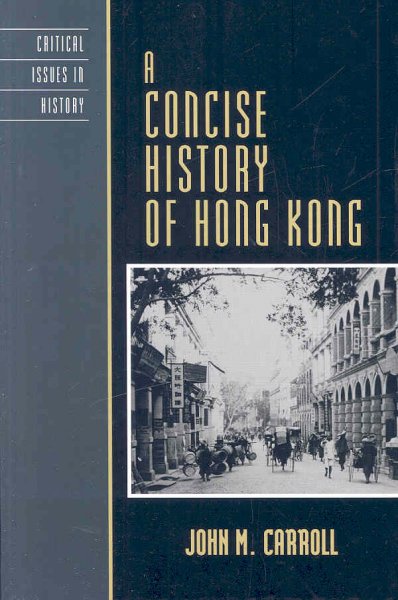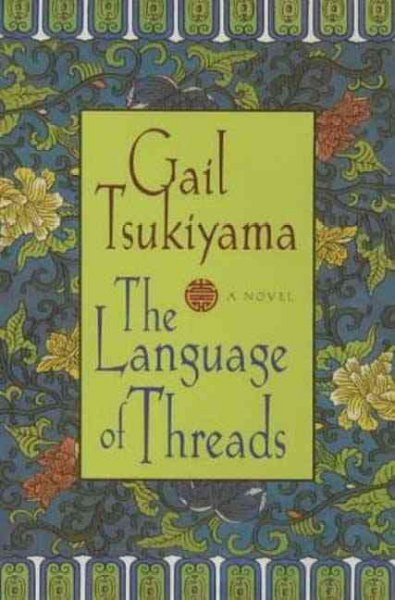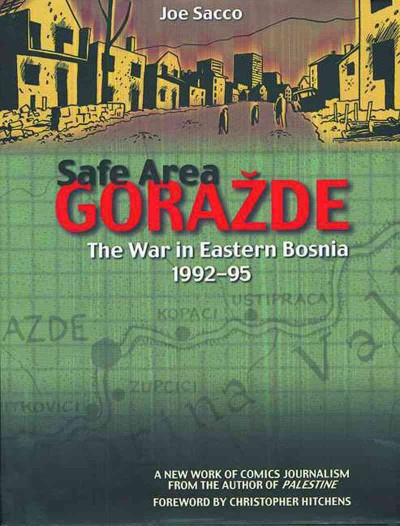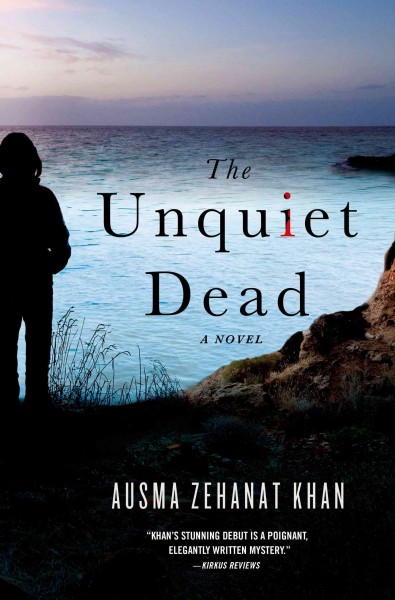
In our Today In History Reading List feature, we take the events of a particular day in history and try to give you a work of fiction and a work of non-fiction relating to those events.
1282 Peter III of Aragon Intervenes in the War of the Sicilian Vespers
In 1266 a French Army under Charles of Anjou conquered the Kingdom of Sicily which included the Southern Italian peninsula and the island of Sicily. On Easter Monday of 1882 the citizens of Palermo after years of ill treatment by their French occupiers rose up and massacred the French and anyone associated with them. This sparked an outright war with the French that Peter III of Aragon took advantage of to invade Sicily and claim it for himself. In 1302 the war was concluded and the Kingdom of Sicily was divided between the French and the Spanish.
The Sicilian Vespers: A History of the Mediterranean World in the Later Thirteenth Century by Steven Runciman.
On 30 March 1282, as the bells of Palermo were ringing for Vespers, the Sicilian townsfolk, crying ‘Death to the French’, slaughtered the garrison and administration of their Angevin King. Seen in historical perspective it was not an especially big massacre: the revolt of the long-subjugated Sicilians might seem just another resistance movement. But the events of 1282 came at a crucial moment. Steven Runciman takes the Vespers as the climax of a great narrative sweep covering the whole of the Mediterranean in the thirteenth century. His sustained narrative power is displayed here with concentrated brilliance in the rise and fall of this fascinating episode. This is also an excellent guide to the historical background to Dante’s Divine Comedy, forming almost a Who’s Who of the political figures in it, and providing insight into their placement in Hell, Paradise or Purgatory.
The Falcon of Palermo by Maria R. Bordihn
The Falcon of Palermo opens with the nations of modern Europe just beginning to take shape, while the papacy clings to its temporal power. Into this era of shifting borders and alliances steps a leader who will become legendary-the brilliant maverick Frederick II. After losing his parents, Emperor Henry Hohenstaufen and Queen Constance, by age four, a young, neglected Frederick runs among the urchins in the Muslim quarter while German warlords overrun Sicily. To restore order the Pope sends Archbishop Berard, a warmhearted man who gradually develops a deep bond with the gifted boy. Fluent in Arabic and strongly influenced by Muslim culture, Frederick aims to return Sicily to her former glory. However, when elected Holy Roman Emperor in a surprise move by the German princes, his vision grows. Once established as the unchallenged ruler, Frederick works to create an empire equal to that of Rome. Marked by his struggle with the Papacy for the domination of Europe, his glorious feats in battle, his recapturing of the Holy Land, his falconry, and the passions that led him to wives, mistresses, and one enduring love, Frederick’s life is a fascinating glimpse into a pivotal period in medieval history.
1835 Melbourne Australia Founded
In 1835 the area around the mouth of the Yara River was explored by John Batman who selected it as a site for a settlement. He supposedly purchased the land from local Aborigines. In August two groups of settlers from Tasmania, including a group let by Batman, settled at the mouth of the Yara and on the 30th officially named the place Melbourne.
A Commonwealth of Thieves: The Improbable Birth of Australia by Thomas Keneally
It was 1786 when Arthur Phillip, an ambitious captain in the Royal Navy, was assigned the formidable task of organizing an expedition to Australia in order to establish a penal colony. The squalid and turbulent prisons of London were overflowing, and crime was on the rise. Even the hulks sifting at anchor in the Thames were packed with malcontent criminals and petty thieves. So the English government decided to undertake the unprecedented move of shipping off its convicts to a largely unexplored landmass at the other end of the world. Using the personal journals and documents that were kept during this expedition, historian/novelist Thomas Keneally re-creates the grueling overseas voyage, a hellish, suffocating journey that claimed the lives of many convicts. Miraculously, the fleet reached the shores of what was then called New South Wales in 1788, and after much trial and error, the crew managed to set up a rudimentary yet vibrant settlement. As governor of the colony, Phillip took on the challenges of dealing with unruly convicts, disgruntled officers, a bewildered, sometimes hostile native population, as well as such serious matters as food shortages and disease. Moving beyond Phillip, Keneally offers captivating portrayals of Aborigines, who both aided and opposed Phillip, and of the settlers, including convicts who were determined to overcome their pasts and begin anew.
Oscar & Lucinda by Peter Carey
This sweeping, irrepressibly inventive novel, is a romance, but a romance of the sort that could only take place in nineteenth-century Australia. For only on that sprawling continent–a haven for misfits of both the animal and human kingdoms–could a nervous Anglican minister who gambles on the instructions of the Divine become allied with a teenaged heiress who buys a glassworks to help liberate her sex. And only the prodigious imagination of Peter Carey could implicate Oscar and Lucinda in a narrative of love and commerce, religion and colonialism, that culminates in a half-mad expedition to transport a glass church across the Outback.
1945 Hong Kong Liberated By British Forces From Japan
The Japanese layed siege to Hong Kong in December 1941. The British forces surrender on December 25. The British colony remained under Japanese control until the end of the war. The war officially ended on August 15 and the Royal Navy arrived at Hong Kong on the 30th to take possession. Throughout the war hundreds of thousands of Hong Kong citizens were shipped to the mainland to work as lave labor and the population was only 600,000 by wars end.
A Concise History of Hong Kong by John M. Carroll
Explores the history of Hong Kong from the early 1800s through the post-1997 handover, when this former colony became a Special Administrative Region of China. This book concludes by exploring the legacies of colonial rule, the consequences of Hong Kong’s reintegration with China, and significant developments and challenges since 1997.
The Language of Threads by Gail Tsukiyama
Readers of Women of the Silk never forgot the moving, powerful story of Pei, brought to work in the silk house as a girl, grown into a quiet but determined young woman whose life is subject to cruel twists of fate, including the loss of her closest friend, Lin. Now we finally learn what happened to Pei, as she leaves the silk house for Hong Kong in the 1930s, arriving with a young orphan, Ji Shen, in her care. Her first job, in the home of a wealthy family, ends in disgrace, but soon Pei and Ji Shen find a new life in the home of Mrs. Finch, a British ex-patriate who welcomes them as the daughters she never had. Their idyllic life is interrupted, however, by war, and the Japanese occupation. Pei is once again forced to make her own way, struggling to survive and to keep her extended family alive as well. In this story of hardship and survival, Tsukiyama paints a portrait of women fighting the forces of war and time to make a life for themselves.
1995 NATO Launches Operation Deliberate Force Against the Serbs in the Bosnian War
Operation Deliberate Force was an air campaign by NATO to destroy Serb targets in support of UN land operations. The campaign was sparked by threats to UN Safe Zones set up after the Srebrenica and Markale massacres. It included 400 aircraft, 5000 personnel from 15 countries participating. It was key to pressuring Serb forces to sign the Dayton Peace Accords.
Safe Area Goražde by Joe Sacco
Praised by The New York Times, Brill’s Content and Publishers Weekly, Safe Area Gorazde is the long-awaited and highly sought after 240-page look at war in the former Yugoslavia. Sacco (the critically-acclaimed author of Palestine) spent five months in Bosnia in 1996, immersing himself in the human side of life during wartime, researching stories that are rarely found in conventional news coverage. The book focuses on the Muslim-held enclave of Gorazde, which was besieged by Bosnian Serbs during the war. Sacco lived for a month in Gorazde, entering before the Muslims trapped inside had access to the outside world, electricity or running water. Safe Area Gorazde is Sacco’s magnum opus and with it he is poised too become one of America’s most noted journalists. The book features an introduction by Christopher Hitchens, political columnist for The Nation and Vanity Fair.
The Unquiet Dead by Ausma Zehanat Khan
Despite their many differences, Detective Rachel Getty trusts her boss, Esa Khattak, implicitly. But she’s still uneasy at Khattak’s tight-lipped secrecy when he asks her to look into Christopher Drayton’s death. Drayton’s apparently accidental fall from a cliff doesn’t seem to warrant a police investigation, particularly not from Rachel and Khattak’s team, which handles minority-sensitive cases. But when she learns that Drayton may have been living under an assumed name, Rachel begins to understand why Khattak is tip-toeing around this case. It soon comes to light that Drayton may have been a war criminal with ties to the Srebrenica massacre of 1995.
